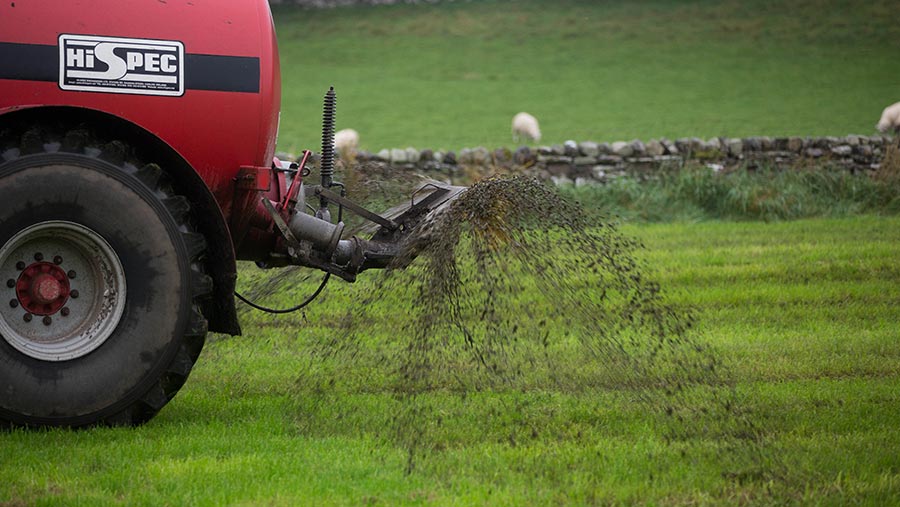NFU Cymru launches legal challenge over ‘damaging’ NVZ rules
 © Tim Scrivener
© Tim Scrivener NFU Cymru has launched a legal challenge against the Welsh government’s new rules to control agricultural pollution.
Lawyers acting on behalf of the union have issued proceedings in the High Court for permission to challenge the government’s new all-Wales nitrate vulnerable zone (NVZ) regulations.
New water quality regulations, which aim to control nitrate pollution from agricultural activities, came into force across the whole of Wales on 1 April this year, despite fierce opposition from farmers and farming unions. They will be phased in over three and a half years.
See also: Look again at voluntary NVZ approach, advise Welsh Tories
The regulations effectively make the whole of Wales an environmental “at-risk” zone, which limits the use of slurry and fertiliser applications on farmland to tackle river pollution.
Launching the legal challenge, NFU Cymru warned that the “heavy and disproportionate” regulations will punish the whole farming sector, and pose a “significant threat” to the economic viability of Welsh farming.
Welsh farmers face having to pay up-front costs of £360m and £14m/year, which will put many small family farms out of business, the union said.
These costs include nutrient management planning; sustainable fertiliser applications linked to the requirement of the crop; limits on when, where and how fertilisers are spread; and upgrading slurry storage facilities to ensure farmers can store slurry for at least five months of the year.
No grassland derogation
NFU Cymru president John Davies said: “We have set out our position that Welsh government has acted unlawfully in failing to take into account all relevant information when undertaking its Regulatory Impact Assessment prior to the introduction of the regulations.
“We have also challenged Welsh government’s failure to include in the regulations a derogation from the applicable nitrogen limit for farmers with 80% or more grassland – something which was available under the previous regulations for those in NVZs.
“We are now waiting to hear whether the court will give us permission to proceed with this case, and, therefore, we are not able to comment further at this time.”
